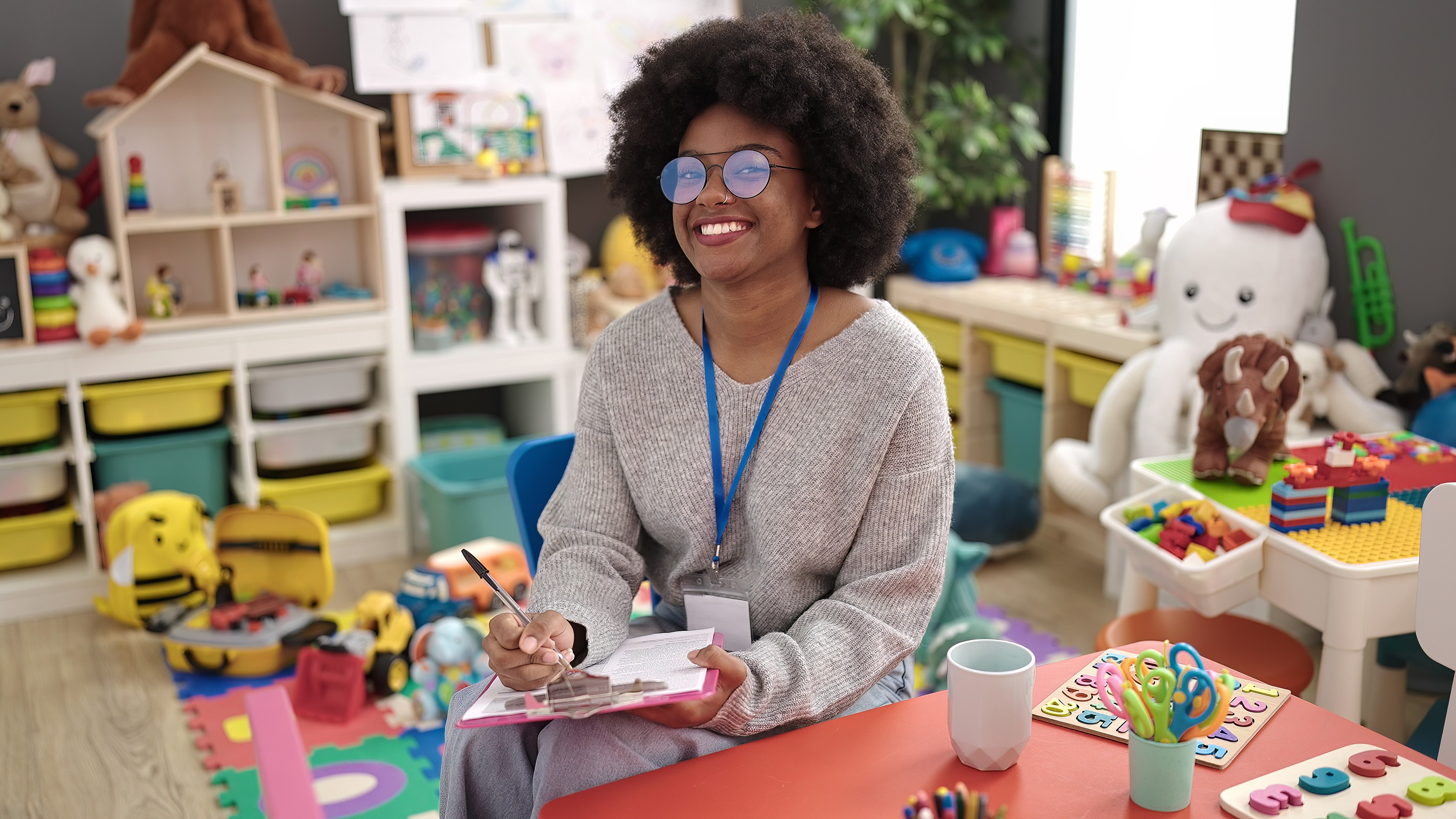The way to a teacher’s heart may be for their students’ parents to get to know them. Or at least, that’s the advice of Nardos King, chief equity officer for Fairfax County Public Schools in Virginia.
As the 2023–2024 school year kicks off in the U.S., theGrio sat down with King to discuss how parents can make allies out of their students’ teachers. Among many things, King said it helps when parents take the initiative to introduce themselves and their children to their teachers. She suggests this happen through a letter or email within the first week of school.

“Tell them what kind of learner they are. Tell them what your expectations are about their behavior in your class. And when they fall short of meeting those expectations, how you would like to be notified,” she said.
She said with average classroom sizes currently ranging between 24 and 30 children, it can be challenging for teachers to get to know everything about each student over the course of a school year.
“But as a parent, if you write a letter to them, then they’re hearing from your perspective what your expectations are of them as a teacher and what they can expect of you as a parent,” said King.
King said in her 34-year-long career, the letter method has proved tried and true — and, as a parent herself, she’s been on both the receiving and giving end. It isn’t just teachers who will be receptive to an introductory letter; King said parents can address one to the school’s principal as well. She first discovered the efficacy of this approach as a principal’s secretary in the early days of her education career.
She said, “I read the letters that people wrote, and I was like, “Oh, you can do that?” I didn’t know that.”
Those parents were writing to introduce their child and identify characteristics they wanted their child’s teacher to have, King said. While parents can’t always outright request a certain teacher for their child, they can identify the characteristics they value or know will help their child thrive.
King shared that when her own children were school-aged, she applied the same approach. She would write to their principal each school year stating clearly which characteristics she wanted her children’s teacher to have and found it to be a successful approach.
“My daughter was three years behind my son, and they had the same teachers all the way through elementary school because I was always satisfied with the teacher,” she said.
Maintaining a positive relationship with your students’ teachers goes beyond introductions, King stressed. She said parents should feel empowered to get involved. Volunteer when the school is looking for parent help for events and activities. Show up to the special programs they put on. Even consider joining the Parent-Teacher Association (better known as the PTA), a surefire way to leave a positive impression on teachers and school staff. King advised becoming “a community member that they can count on.” That extra effort benefits the school, your relationship with the staff, and, she added, “People tend to pay attention to your children as well.”
When asked about common misconceptions parents and teachers may have about each other, King said not all parents who don’t show up or participate in anything at school are inactive parents who don’t care about their children or their success.
“I think everybody who sends their kids to school cares about their kids,” King said. “Their life circumstances may cause them to show up differently.”
King said while there are those parents who can make every PTA meeting, music recital, and sporting event the school puts on, they aren’t necessarily more keen on their child than any other parent.
“There’s a misconception sometimes that when parents don’t show up to these things, they don’t care about their kids. And that’s not true,” she said.
Parents who maybe can’t be as active as they’d like can still send letters and emails introducing themselves to their students’ teachers and administrators. They can use that communication as an opportunity to explain their situation so teachers aren’t left with the wrong impression.
By the same token, there are common misconceptions parents have of teachers that can get in the way of a better dynamic. King said one she hasn’t found true in her 34 years in education is that teachers somehow don’t like children.
“I think a lot of times, there’s a misconception when people are upset the easiest thing to say is, ‘Well, they just don’t like my child.’ I don’t think that’s ever the case,” she said.
King emphasized that it’s pretty rare for someone who isn’t highly keen on shaping young minds to go into teaching. The low pay and lack of resources many educators face typically make it a job only those who are really committed can do. With 34 years under her belt, King has experienced a lot. She admitted, “Sometimes we can do better at schools on how we support students who struggle, but nobody wants to see a child fail.”

Kay Wicker is a lifestyle writer for theGrio covering health, wellness, travel, beauty, fashion, and the myriad ways Black people live and enjoy their lives. She has previously created content for magazines, newspapers, and digital brands.
TheGrio is FREE on your TV via Apple TV, Amazon Fire, Roku, and Android TV. TheGrio’s Black Podcast Network is free too. Download theGrio mobile apps today! Listen to ‘Writing Black’ with Maiysha Kai.

